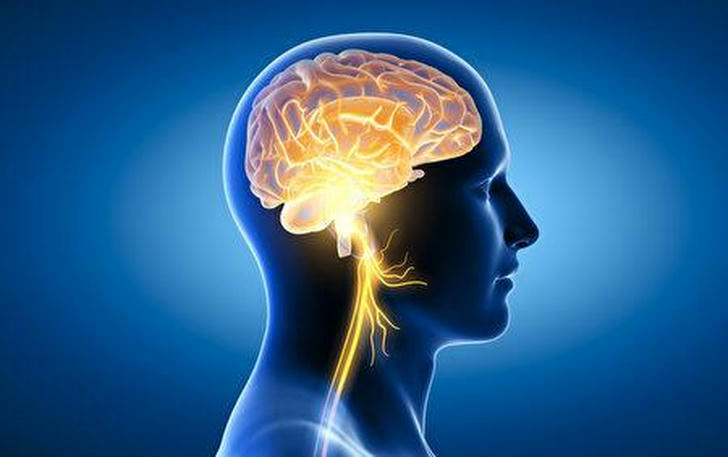Feeling Dizzy in the Morning? It Might Not Be Sleep—Your Body Could Be Warning You!
You wake up, swing your legs off the bed, and suddenly the world tilts. Morning dizziness is an unsettling way to start the day, and it’s often brushed off as just “not being fully awake” or “probably didn’t sleep enough.” But what if it's more than that? What if your body is trying to send you a subtle yet important message about your overall health?
Morning dizziness can be caused by a range of factors—from something as simple as dehydration to more serious conditions like low blood pressure, anemia, or inner ear disorders. While the occasional dizzy spell may not be a cause for concern, recurring morning dizziness warrants closer attention.
Let’s take a deeper look at the common causes of morning dizziness, how to recognize warning signs, and what steps to take for a steadier start to your day.

1⃣ It’s Not Always About Sleep Deprivation
It’s a common assumption: if you feel dizzy in the morning, maybe you just didn’t sleep well. But dizziness and tiredness are not the same thing. While fatigue can make you feel sluggish and unfocused, dizziness is a physical sensation of imbalance, spinning, or lightheadedness.
Poor sleep can contribute to dizziness indirectly—by disrupting your body’s ability to regulate blood pressure or hydration—but it’s rarely the sole cause.
In other words, don’t automatically blame lack of sleep. Look for other clues in your body’s behavior.
2⃣ Dehydration: The Silent Culprit
Overnight, your body undergoes a natural loss of fluids through breathing, sweating, and urination. If hydration levels weren’t replenished properly the previous day, waking up dehydrated is quite common.
How dehydration causes dizziness: With reduced fluid levels, blood volume drops, causing blood pressure to fall when you stand up. This makes it harder for the heart to pump enough blood to the brain, leading to dizziness or lightheadedness.
Warning signs: Dry mouth, headaches, dark yellow urine, and dry skin upon waking.
Hydration tip: Try drinking a glass of water before bed (if it doesn’t interfere with sleep) and keep a water bottle near your bed to hydrate first thing in the morning. Including water-rich foods like cucumbers, oranges, and melons in your diet also helps maintain better fluid balance.
3⃣ Orthostatic Hypotension: Sudden Drops in Blood Pressure
Orthostatic (or postural) hypotension refers to a sudden fall in blood pressure that occurs when moving from lying down to a standing position. It can lead to:
- Dizziness or lightheadedness
- Blurred vision
- A sensation of floating or blacking out
This condition becomes more likely in the morning because the body is transitioning from a prolonged period of stillness. Blood pools in the lower body and takes time to return to the brain—especially if you’re dehydrated or have underlying cardiovascular issues.
Common in: Older adults, people on blood pressure medications, and individuals with autonomic nervous system disorders.
Prevention tip: Take your time getting out of bed. Try sitting up slowly, then placing your feet on the ground and sitting for 30–60 seconds before standing fully. Compression socks can also help improve blood flow.
4⃣ Low Blood Sugar: Running on Empty
If the last meal of the day was early—or if it lacked complex carbohydrates or protein—you may experience a drop in blood glucose by morning. The brain depends heavily on glucose, and low levels can cause:
- Shakiness
- Dizziness
- Blurred vision
- Nausea
People with diabetes, or those prone to hypoglycemia, are especially at risk. However, anyone can experience this if they skip meals or eat poorly the night before.
Tip: Have a nutrient-balanced dinner that includes protein, fiber, and slow-digesting carbs. A bedtime snack such as a banana with almond butter or yogurt with oats may help maintain blood sugar overnight.
5⃣ Inner Ear Issues: The Balance Center Malfunction
Your inner ear contains the vestibular system—a complex structure that helps your brain understand balance and spatial orientation. When something disrupts this system, like an infection or dislodged crystals (as in BPPV), you may experience intense vertigo, especially when changing positions.
Benign Paroxysmal Positional Vertigo (BPPV) is one of the most common causes. It’s often triggered by certain head movements and can result in:
- Room-spinning sensation
- Loss of balance
- Nausea
This type of dizziness tends to last only seconds but can be severe.
Solution: ENT specialists can perform the Epley maneuver, a simple set of head movements that often resolves the issue. Home exercises can also help manage recurring symptoms.
6⃣ Anemia: Oxygen Deficiency in the Brain
Anemia, particularly iron-deficiency anemia, impairs the blood’s ability to carry oxygen to tissues, including the brain. This oxygen shortage can cause:
- Dizziness and fatigue upon waking
- Paleness
- Shortness of breath
- Irregular heartbeat
Those at higher risk include menstruating women, vegetarians, and individuals with gastrointestinal issues affecting iron absorption.
Fix: Increase intake of iron-rich foods such as spinach, red meat, tofu, and lentils. Pairing these with vitamin C sources (like citrus fruits) improves absorption. A blood test can confirm if supplements are necessary.
7⃣ Sleep Apnea: Interrupted Breathing and Low Oxygen
Obstructive sleep apnea (OSA) affects millions of people and often goes undiagnosed. It involves repeated episodes of airway obstruction during sleep, leading to oxygen deprivation and poor sleep quality.
Symptoms include:
- Loud snoring
- Gasping for air during the night
- Morning headaches or dizziness
- Daytime fatigue
This low oxygen at night can affect brain function and cause imbalance or confusion upon waking.
What helps: If you suspect sleep apnea, consult a sleep specialist. Diagnostic tests like a home sleep study or polysomnography can help identify the condition. Treatment options include CPAP therapy, weight loss, and positional therapy.
🆘 When to Take Morning Dizziness Seriously
While occasional dizziness isn’t always alarming, persistent or severe symptoms can indicate something more serious. Always seek medical advice if you experience:
- Dizziness that lasts longer than a few minutes
- Loss of consciousness or fainting
- Chest pain, shortness of breath
- Numbness, confusion, or slurred speech
- Difficulty walking or seeing
These may be signs of cardiovascular issues, neurological conditions, or metabolic imbalances requiring immediate attention.
✅ Morning Dizziness Prevention Checklist
| Habit | Why It Matters |
|---|---|
| Drink water upon waking | Rehydrates the body and stabilizes pressure |
| Eat a protein-rich dinner | Keeps glucose stable overnight |
| Avoid alcohol before bed | Prevents dehydration and blood sugar swings |
| Rise slowly from bed | Reduces risk of sudden blood pressure drop |
| Keep room cool and ventilated | Improves sleep quality and oxygen intake |
| Monitor medications | Some cause dizziness as a side effect |
| Add iron and B12-rich foods | Supports blood oxygen delivery |
🧠 Final Thoughts: Tune In to What Your Body Is Saying
Dizziness upon waking may seem minor, but it’s often a useful signal—a cue from your body that something is off. Whether it’s hydration, circulation, blood sugar, or an ear issue, morning dizziness shouldn’t be ignored if it persists.
By paying attention to patterns and making small lifestyle adjustments—hydrating better, eating smarter, standing up slowly—many cases can be prevented or minimized. And for those situations where dizziness is more frequent or severe, prompt medical evaluation ensures that underlying conditions are identified early.
A clear head and balanced start to your morning aren’t just possible—they’re essential to long-term health and well-being.

